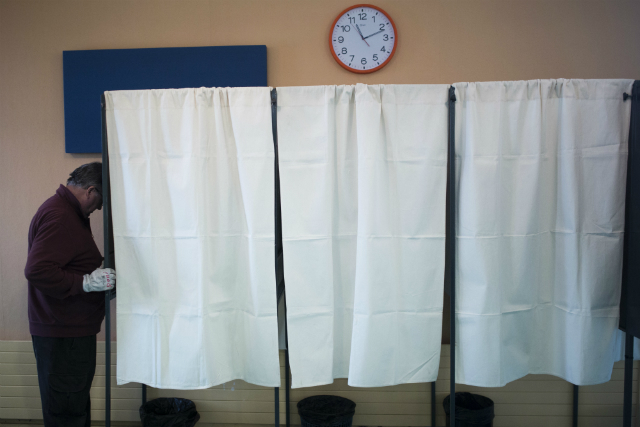AP Photo / Kim Zihnioglu
You’re at the voting booth, ready to cast your vote for the candidate who will support the issues you care about. But how did you come to care about those issues to begin with? Did you and your fellow Americans set the political agenda, or do politicians dictate what’s important? Gabriel Lenz is the author of “Follow the Leader?: How Voters Respond to Politicians' Policies and Performance.” We talk with him about political influence and how it shapes democracy.
Three Takeaways
- Even though most voters like to think they’re the ones calling the shots, Lenz says that’s not generally the case. He argues that American politics mostly works off the “democracy inverted” model, where politicians dictate our perspectives on policy.
- Lenz says Americans are easily led by politicians in large part because voters are uninformed when it comes to the issues. Take this startling statistic: Only about half of voters know that Republicans tend to be more pro-life when it comes to abortion issues.
- In fact, Lenz says voters seem to care so little about the issues that they are very rarely swayed by policy-based arguments. He points to George W. Bush’s plan to invest social security money in the stock market during the 2000 election. Lenz says the policy, which was highly publicized at the time, did little to push voters in any direction.
More reading
- Vox takes a look at why political traditionalists are more likely to be driven by ideology than regular voters.
- If policy doesn’t influence voting, what does? Lenz told the BBC that people really care about how a politician looks.
- Pacific Standard Magazine reports on a study that shows campaigns don’t actually do much to change our minds before we hit the ballot box.
- The Crosstab takes a look at how congressional elections are more partisan than ever before.


